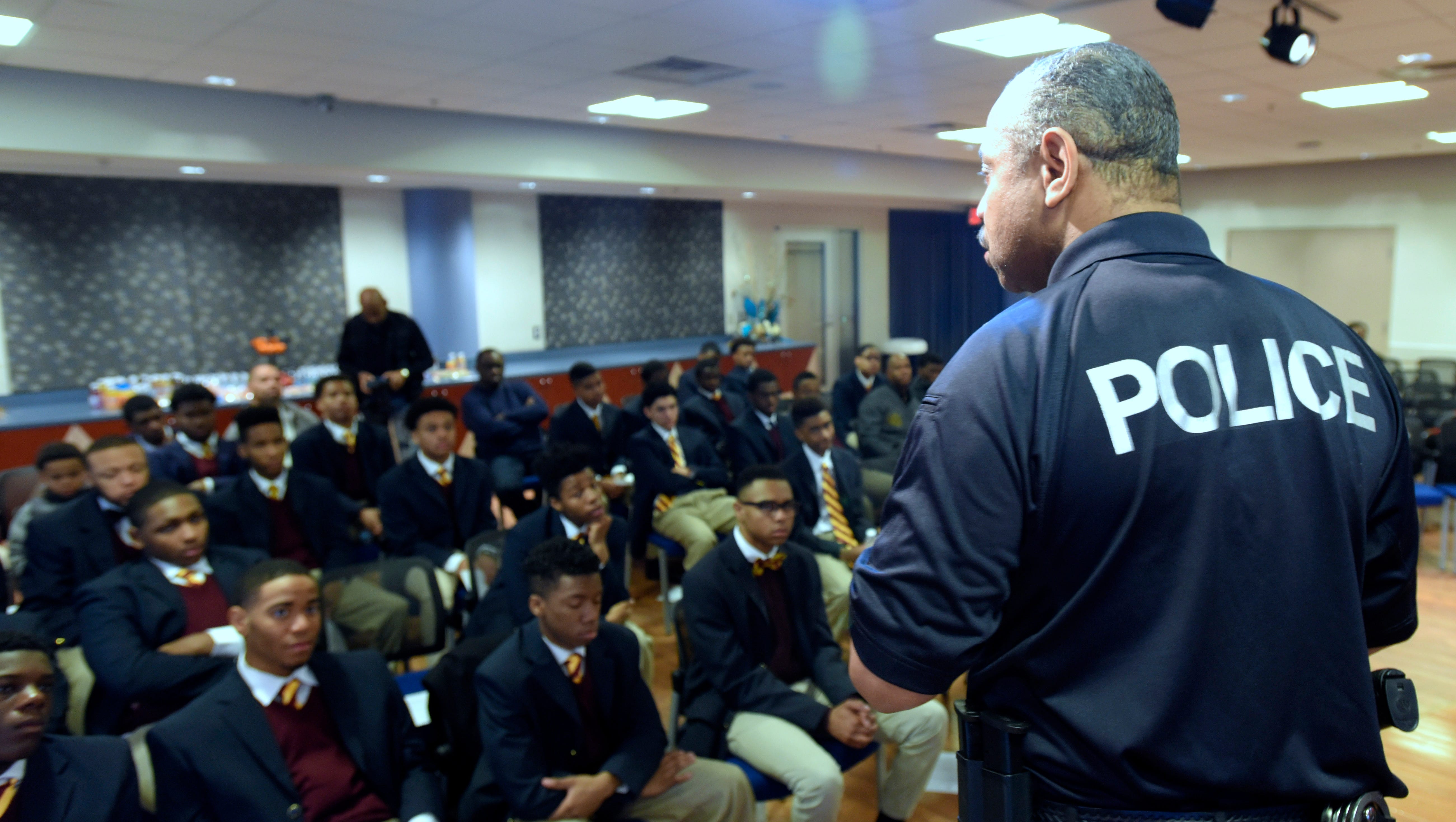Detroit teens, police build bridges during forum
Detroit – About 75 youths spent Saturday morning at a community forum talking about how to build trust between African-American teens and law enforcement.

The Kappa Alpha Psi fraternity’s Detroit alumni chapter hosted the event at Wayne Community College, part of a series of forums in their Guide Right Youth Leadership Development Program.

During Saturday’s open conversation, the teens had the opportunity to ask questions and have their voices heard about how African-American teens can navigate through today’s experiences.
The youth fraternity was inspired to hold forums in 2014, after Michael Brown was killed by an officer in Ferguson, Missouri. The fatal shooting of the unarmed, black 18-year-old by a white police officer nearly three years ago set off months of protests.
“We have a different perspective,” said Dominic Kennedy, 16. “We’re not in different worlds, but with police, it didn’t feel like we were treated the same as white people.”
Officials including Commander Donafay Collins of the Wayne County Sheriff’s Department, Michigan State Police Sergeant Dwayne L. Gill, Farmington Hills Police Chief Charles Nebus and Detroit Police Commander Johnny Thomas and Detective Brian Foundation were in attendance.
Other panelists were civil rights attorney Godfrey Joseph Dillard Sr., Anthony Lewis, director of Michigan Civil Rights Business and Community, and Darnell Blackburn from Michigan Commission on Law Enforcement Standards.
The forum aimed to open dialogue between cops and African-American teens in hopes that it would provide a space for communication and encourage them to pursue law enforcement careers.
The group conversed about what to do when being stopped by an officer, how to show respect, methods to take when confronted by an officer, and rules and polices about officers’ use of excessive force.
Dillard and Lewis spoke about how lack of training and accountability of officers plays a role in tense interactions between police and community members nationwide.
“You can’t shoot someone else who doesn’t have a gun and call it self-defense,” said Dillard. “It’s all in the training and policy. Life means something and you better not give them a reason to shoot you ... pull over, comply and complain later.”
Gill agreed it’s not just about policy and accountability but leadership, and said it wouldn’t be tolerated with MSP. He addressed the incident involving an ex-trooper who fired a Taser at Damon Grimes while he was riding his ATV on Detroit’s east side, saying “he wasn’t trained like that.”
“We’re not going to tolerate this type of abuse, doesn’t matter what color you are,” said Gill. “What he did was absolutely wrong and I believe we are going to have to be accountable in leadership.”
Thomas told the youth that officers aren’t targeting specific individuals but they tend to stop drivers who are attracting attention to themselves.
“Driving while black is not a mythical phenomenon,” Thomas said. “Officers will pull you over if you’re attracting to yourself or give them a reason to and that could be for anything ... things hanging off your mirror, an unreadable license plate ... make sure everything is up to par and it won’t happen.”
Male students in the fraternity said they felt the forum helped change their perspective about law enforcement and how to communicate while being heard.
“It’s good to know police in your area,” said Kennedy, of Detroit. “Some of us don’t know how to act with police to understand and realize it’s not what you say, but how you say it ... all of these things help.”
Antonio Ball, chapter president of Kappa Alpha Psi, said it was essential to build bridges with police in light of several nationally high-profile fatal interactions between police officers and members of the African-American community.
“Unlike what we hear in music these days about police, it’s important to know they’re a friend, not a foe, and everything they do is just trying to help you out and teach you,” said Ball, 16.
srahal@detroitnews.com